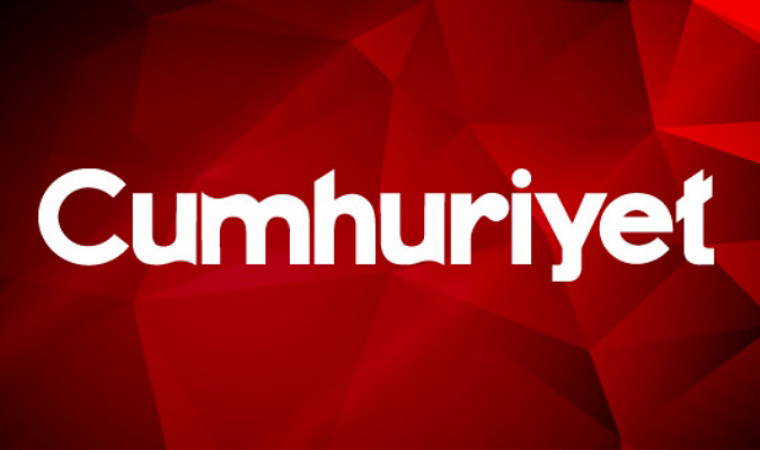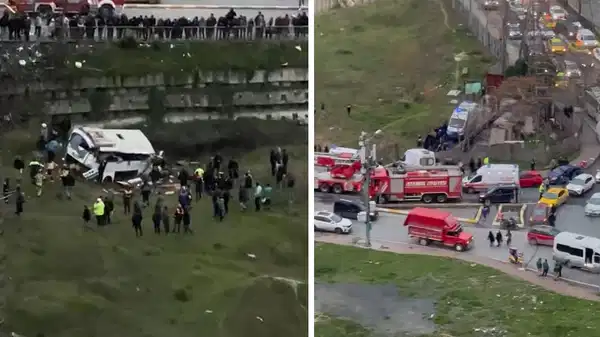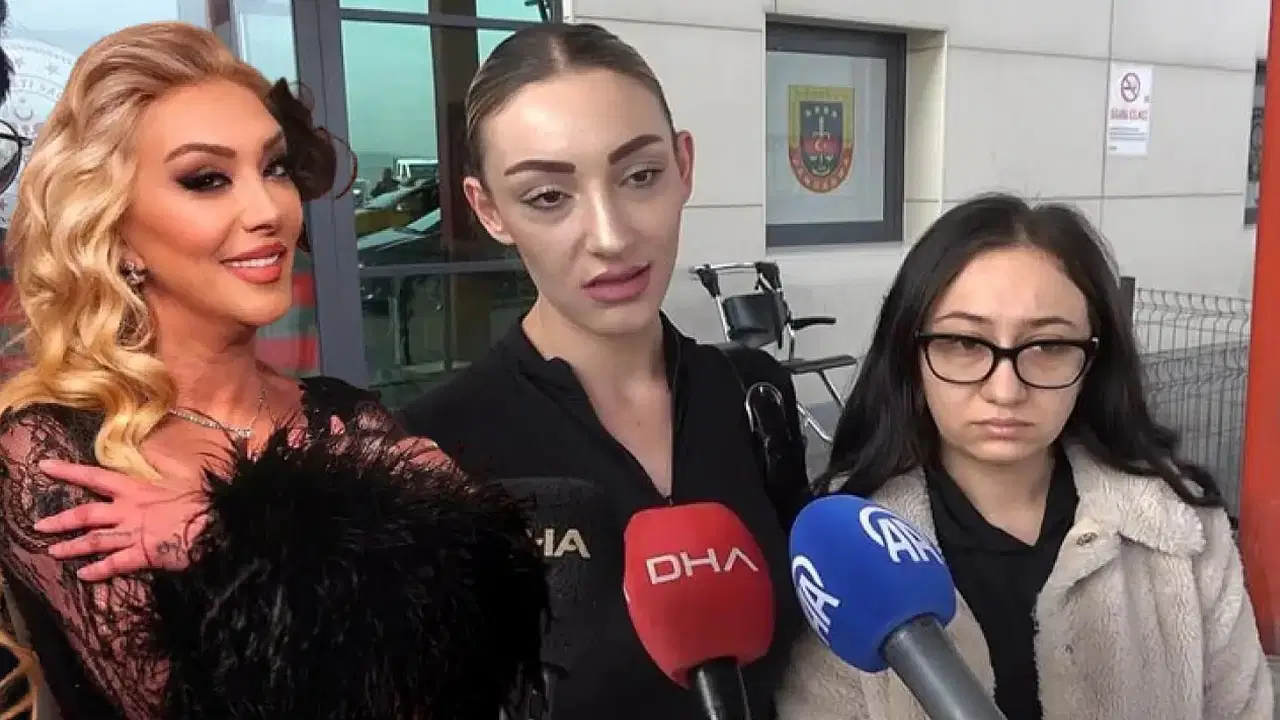 KONDA CEO Bekir Ağırdır, saying the Ak Party has been reduced to a “defensive strategy for the first time since 2002,” indicated, “If such details as the opposition’s candidacy strategy, its forming an alliance that results in a zero electoral threshold, its efforts until the last day over a joint candidate and, as to the CHP, its acting with a sacrifice unexpected of it are taken into consideration... the opposition, and not the Ak Party, appears to be in control of the game. This situation, in turn, is a disadvantage for the Ak Party because it does not know what its defence strategy is.” Ağırdır, noting that the CHP’s candidate Muharrem İnce was “a handicap” for Good Party General Chair Meral Akşener, commented, “A portion of the voters who are inclined towards the Good Party are CHP voters, and a portion MHP voters. İnce’s candidacy has stopped those in their tracks who, despite being CHP supporters, were saying, ‘I’ll vote for Mrs Akşener.’” Ağırdır, also pointing out that the opposition parties have fielded the most correct candidates from their point of view, indicated that if it made it into a second round, the figure who went into the second round needed to be someone who took around 30% of the vote and had the image of being able to govern the country, and said that the name most likely to go to the second round was in fact Muharrem İnce. Ağırdır replied to our newspaper’s questions as the countdown to the election continues.
KONDA CEO Bekir Ağırdır, saying the Ak Party has been reduced to a “defensive strategy for the first time since 2002,” indicated, “If such details as the opposition’s candidacy strategy, its forming an alliance that results in a zero electoral threshold, its efforts until the last day over a joint candidate and, as to the CHP, its acting with a sacrifice unexpected of it are taken into consideration... the opposition, and not the Ak Party, appears to be in control of the game. This situation, in turn, is a disadvantage for the Ak Party because it does not know what its defence strategy is.” Ağırdır, noting that the CHP’s candidate Muharrem İnce was “a handicap” for Good Party General Chair Meral Akşener, commented, “A portion of the voters who are inclined towards the Good Party are CHP voters, and a portion MHP voters. İnce’s candidacy has stopped those in their tracks who, despite being CHP supporters, were saying, ‘I’ll vote for Mrs Akşener.’” Ağırdır, also pointing out that the opposition parties have fielded the most correct candidates from their point of view, indicated that if it made it into a second round, the figure who went into the second round needed to be someone who took around 30% of the vote and had the image of being able to govern the country, and said that the name most likely to go to the second round was in fact Muharrem İnce. Ağırdır replied to our newspaper’s questions as the countdown to the election continues.
- In your view did MHP General Chair Bahçeli and President Tayyip Erdoğan engage in connivance?
I would not actually argue that there was connivance. There have been two times when Mr Bahçeli spoiled the President’s game plan and scenario. This was the case in the referendum period. It is my view that the Ak Party was going to raise its proposal for a presidential system somewhat later, perhaps nowadays. They had to bring it forward with Bahçeli coming out with it. They will now hold the early election early, too. I had no doubt that they would hold it before the local elections. Holding it this early – Mr Erdoğan was making a series of changes in the party ranks speaking of “metal fatigue” and the like, you know – is before those operations have yet been completed or maybe they were planning to do some things with the new echelons, like creating certain success stories. Just think, now nobody knows the names of the Ankara and Istanbul mayors. So, they were in need of various things. Because of this, it does not particularly appear to me that there was connivance.
- Fewer than two months remain until the election. Do you think this period favours the opposition or the ruling party?
It will benefit whoever makes correct use of the period. Of course, the opposition has advantages. For one thing, in view of the economic situation, the Ak Party was still perhaps going to make a significant portion of the election-oriented populist pledges being attempted now like the planning amnesty, like the bonuses for the retried or like the tax amnesty, but was going to do so within a certain economic time frame and planning. Now, with all this suddenly happening at once with such tight timing, and also under the influence of election psychology, they fail to deliver the expected benefit. And there is no end to the economic constraints, either. If the dollar does not fall despite the making of economic interventions and the state and public sector’s interventions cannot halt the economic crisis, this will engender the thought in society that an economic crisis is really on the way. These are all situations that are to the ruling party’s disadvantage. But, whether this is to the opposition’s advantage will depend on what the opposition does.
- Well, how do you rate the opposition as things proceed?
If we set our minds back to the referendum, it came out 50%-50%. And, on top of this, how did things come out this way? It was 50%-50% again under state of emergency conditions, in an environment which again enabled one-sided campaigns to be conducted, one-sided rhetoric again dominated the media or the “No” campaigns were not spoken of and their case could not be made in the media, and, above all, without a joint language-strategy. This means that, if the opposition can develop more correct gambits and more meaningful strategies, there is the chance of raising this 50% to 55 or 60%. When we look, the opposition has gained the advantage that each opposition actor has set out with self-confidence. The sense that, whatever we do, the AKP will win has been dispelled. This was a significant minus. It is not enough to ensure victory, but it counts as one of the successes in the campaign. If you lack self-confidence, the electorate senses this. Remember the campaign in the CHP for the 2015 presidential election – it bears no comparison to today; there is a different dynamic and excitement today. When we look from here, since every party is fielding their own candidates, and on the top of that the best and most correct candidates they could field from within their own midst, they appear to have grasped the kind of opportunity to maximise their own vote. They appear to have created an initial energy in their party organisations. Today, no CHP provincial chair is contemplating the first round saying, “We’re going to lose this election.” Or, no HDP provincial chair or official is looking on saying, “We’ll remain below the threshold.” On the contrary, there is an assertion in their gaze. If they can organise this excitement correctly in their politics going forward, this is a start and this was a precondition and they appear to have pulled it off. So, the opposition is more excited. There is an economic issue here for the Ak Party and there is also a very strategic consideration. For the first time since 2002, the Ak Party finds itself resorting to a defence strategy. This candidacy strategy of the opposition, and making a joint alliance resulting in a zero electoral threshold... Of course, shortcomings such as whether the HDP is in the alliance are open to debate. If such details as the opposition’s candidacy strategy, its forming an alliance that results in a zero electoral threshold, its efforts until the last day over a joint candidate and, as to the CHP, its acting with a sacrifice unexpected of it are taken into consideration, irrespective of their share of the vote, the opposition, and not the Ak Party, appears to be in control of the game. This is an advantage for the opposition. Conversely, this is a disadvantage for the Ak Party. The Ak Party does not know what its defence strategy is.
- The economic crisis in 2000 found reflection in the ballot box. The rise in the dollar, gold and the euro, the ongoing economic crisis... How would you say this will affect voting patterns?
The issue you refer to has two different dimensions. First, to return to 2002, the issue was not just the economic crisis. My analysis would be as follows: 28 February, the Marmara earthquake, the Susurluk incident, the 2000 and 2001 crisis. Looking at all this as a whole, those five years were periods in which society’s confidence in the state was rocked. Society broke off its relationship of confidence with all the actors of that moment or of that process. Even if it was unsure, the Ak Party appeared in front of it in the form of a new party. The Ak Party came at the end of such trauma. In today’s economic crisis, conversely, all the actors to hand are old. Your CHP, your Felicity Party and your HDP are all old. In fact, even the Good Party is old. Even if the name is new, looking at its actors and rhetoric, it is old. There is great disquiet in society. Two-thirds of the country regard the future with pessimism due to the polarisation going on in the country and due to the language that the political culture resorts to in the country and the things they hear every day from the media. Eighty per cent of the country has been reduced to saying, “If I get the chance maybe I should send my kids abroad” due to so much being turned topsy-turvy and an arbitrary situation whose changes we can’t make sense of in the education system, and sixty per cent of the country has come to a state in which it does not trust any judicial decision. The issue is not purely economic. So, society is pessimistic, on edge and troubled. The pious are bewildered because they see that the law is also needed, not just fear of sin. But, as far cohabitation goes, they have no project at hand, because when they look to their leaders what they see is a party that quarrels with everyone, with intellectuals, with the Kurds, with left-wingers. As to the white Turks, they are greatly worried about their life styles and areas of freedom. The Kurds, in turn, are full of resent and sorrow. None the main groups within the country is today inspired with hope over the future. I say this with disregard to the efforts over the past fifteen days of all the actors at their disposal. At least until fifteen days ago, these were the parties that were the actors in all this polarisation. So, society, despite all its complaints, cannot see an actor it is calling on to get it out of this chaos. At times when the pessimism from such a psychological crisis hits rock bottom, society looks to intellectuals and politicians and asks where this way out is. If, even at such a time, all of society’s intellectuals are engaged in polarisation, society loses its hope in full. So, there was a crisis and the AKP came to power. There is now a crisis and will a new actor emerge? We are not talking about precisely identical processes. The processes are different, and the actors and dynamics are different.
- A large number of HDP MPs and mayors are detained. If it goes to a second round, what do you think the HDP will do in the second round? Is the parting of ways critical for the Kurds?
I mean, this election is critical for the HDP and Turkey’s politics. The HDP has been included in neither of these alliances. And there were indeed those in the opposition block who said, “We should not stand side by side with the HDP.” It is thus impossible for any Kurdish citizen not to be angry and resentful about this. We are talking about a party and representatives to which six million people have a heartfelt attachment that everyone treats as if it had the plague. The curious side to this is that these politicians aspire to run the country. There is thus a critical side to things in that momentous consequences ensue in terms of the resulting political mathematics depending on whether the HDP crosses the threshold. Wherever there are Kurds, there is the HDP and the Ak Party. If the HDP is absent, there is no other C party. The Ak Party will win the votes that the HDP is unable to get or the MPs it is unable to gain. So, the HDP’s mathematics will affect the mathematics of the election result. Like the HDP’s policies or not, the presence of the HDP in Turkish political life or in parliament means the Kurds having channels to voice their own demands and needs, and the most important issue of the region and the Middle East is the Kurdish issue. Of this country’s citizens, 18% define themselves as Kurdish. They want to have a say, exist and count with reference to this country’s future. You, on the other hand, want to discount them. Due to such issues as the resentfulness and weakened will to live together those people harbour, it is critical for the HDP to cross the threshold. Additionally - the numbers are known and the number of the polarised is known - if the opposition actors want to take power from the Ak Party, they need the Kurdish vote. The HDP must exist come what may. The Kurds have a formal, legal party. What happened because they were discounted for eighty years is known to all. In the end, if nothing extraordinary happens, it is very unlikely that the HDP will remain below the threshold.
- It looks certain that the AKP’s candidate will go through to the second round. What effect has the CHP’s choice of İnce had? How would you say both the HDP and Akşener regard this candidate? Who will make it to the second round?
When you look at the parties’ existence and all their strategies and negotiations while embarking on this process or even the talks during alliance negotiations, the CHP made the right choice from its own point of view. Muharrem İnce being a man who comes from within the organisation, that is, he was not subsequently transplanted into the CHP or he is not a figure who was transplanted into the CHP on the grounds that he had a name, fame and an academic career. He first served by being a provincial chair, an ordinary member. So, it is important for the CHP to be reexperiencing this excitement as an organisation and be reflecting this excitement into the street. This means above all that the CHP has maintained its own vote. It has fielded the correct candidate from its own point of view. But, this is a handicap for the Good Party and Mrs Akşener, because half the people who are inclined towards the Good Party are CHP voters, and half MHP voters. İnce’s candidacy has stopped those in their tracks who, despite being CHP supporters, were saying, “I’ll vote for Mrs Akşener.” The votes that Mrs Akşener gets from the MHP and Ak Party will settle the issue. The four parties have fielded the correct candidates from their own point of view.
- If the election goes to a second round, which party would you say will go through to the second round?
If it makes it into a second round, the figure who goes into the second round needs to be someone who takes around 30% of the vote and has the image of being able to govern the country. Muharrem İnce appears to be the closest CHP candidate to that. But this will depend on whether İnce can boost the CHP’s 25% vote we see in the polls. Also, one picture will emerge if the CHP makes it through to the second round with 25% of the vote, and another picture will emerge if it does so with 30-35% of the vote.
- The AKP suffered huge disappointment in the referendum in cities like Istanbul, Ankara and Izmir. Would you say this disappointment will continue in the presidential elections?
It probably will. There are both sociological and economic reasons for this. Looking at the “No”-voting political map in the referendum, we see three clusters. One of these is the South-East. It is clear what their demands are; their needs and the problem are clear. Looking in turn at Central Anatolia and the Black Sea, this is territory that voted “Yes” in the seventies per cent, that needs the state for it to develop and for employment, where the economic dynamics in its own territory have not strengthened sufficiently and that, say as much as you will that an investment is harmful to the environment, supports that investment out of the hope for employment for their children. And then there is the Western territory. A territory that is urbanised, metropolitan, has a more Western and secular lifestyle and its own economic actors and dynamics, and whose expectations of the state, in turn, are for the law and freedom, and, thus, where sustainability, the environment and women’s issues come to the fore. These territories are not just places that are definable in political terms. Nothing has happened in two years to change this cultural and economic geography. Life has not abruptly changed There have been no changes in terms of socio-economic development or in terms of education. The opposition is certain to get the vote in the metropolitan territory in the West.
- Let us say Erdoğan has won the presidency but the opposition alliance has got more than 300 in the parliamentary election. In this case, how will this pan out for Turkey? Will Erdoğan immediately resolve on an election?
Let me first express my opinion that I do not wish for this. It is to be hoped that they will see the inevitability of compromise among the people who aspire to govern this county and the need to multiply our areas of joint agreement not our impositions on one another in the interests of cohabitation, and they will bring off a revolution in our political culture. Of course, the President is vested with very wide areas of power under the new Constitution. Including proclaiming a provisional budget and ruling the country in line with it. Looking at Mr Erdoğan’s political style, he is also capable of doing this. He also has such power, intent and desire. He has social forces from which he draws support, too. So, he may still say, “Even if parliament hinders me,” and continue to do many new things.















